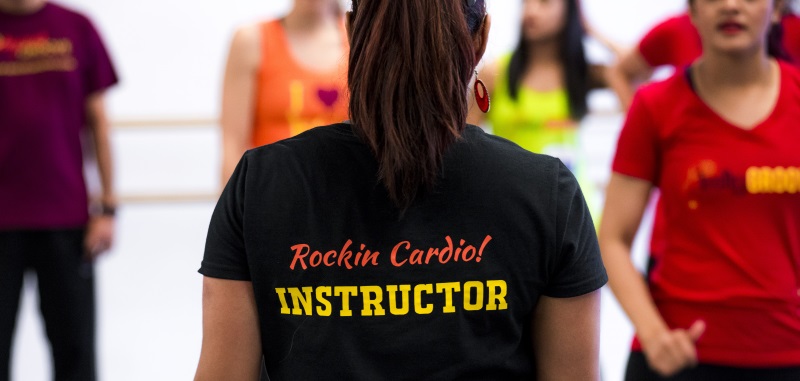Join the bG Team!

Join the BollyGroove Team!
We provide free training and content and pride on a fantastic team of bright, enthusiastic and professional individuals!
Make some $$$ and develop amazing professional and life skills!
Please check back for open positions.

South Asians, Type 2 Diabetes, and Nutrient Intake – New Study Finds Interesting Results
By Rachelle Mallik, MA, RD, LDN, Registered Dietitian and Owner of The Food Therapist, LLC
 A recent study looking at dietary intake among South Asians in the US found that those with type 2 diabetes consumed less calories, but also lower amounts of nutrients than South Asians without type 2 diabetes. According to the study authors, many of these nutrients are associated with a reduced risk of developing type 2 diabetes. Some of the nutrients where study participants with type 2 diabetes fell short included fiber, calcium, magnesium, zinc, potassium, vitamin E and beta-carotene (the precursor to vitamin A).
A recent study looking at dietary intake among South Asians in the US found that those with type 2 diabetes consumed less calories, but also lower amounts of nutrients than South Asians without type 2 diabetes. According to the study authors, many of these nutrients are associated with a reduced risk of developing type 2 diabetes. Some of the nutrients where study participants with type 2 diabetes fell short included fiber, calcium, magnesium, zinc, potassium, vitamin E and beta-carotene (the precursor to vitamin A).
While this was a small and very short-term study, it’s important to remember that nutrition is more than just calories and the quality of the food you eat matters. A diet rich in nutrient-dense foods, like vegetables, fruit, whole grains, legumes, nuts and seeds, provides energy (calories) as well as vitamins, minerals, and antioxidants that are associated with improved health outcomes. Considering that South Asians are five times more likely to develop diabetes before age 40, it’s important to remember that your diet is something you can change to reduce your risk.
Here are some foods to include in your diet that provide key nutrients from the study:
Calcium: milk, yogurt, fortified non-dairy milks, tofu, broccoli, almonds, sesame seeds/tahini
Magnesium: nuts (almonds, cashews), spinach, legumes (lentils, kidney beans, soybeans)
Zinc: shellfish (crab, lobster), chicken thighs, cashews, chickpeas, yogurt
Potassium: lentils, bananas, avocados, potatoes
Vitamin E: sunflower seeds, almonds, peanut butter, cooked spinach
Vitamin A (beta-carotene): dark leafy greens (spinach, mustard greens), orange-hued vegetables (butternut squash, pumpkin, sweet potato), cantaloupe
For good sources of dietary fiber, check out this earlier article. Bonus – these foods can also help lower cholesterol!
If you are interested in making dietary changes to reduce your risk of diabetes, heart disease, or you just want to eat well and be healthier, email me at rachelle@rachellemallik.com. I offer complimentary intro sessions to talk about your health goals and see if we’re a good fit for working together.
Rachelle LaCroix Mallik, MA, RD, LDN is a Registered Dietitian and owner of The Food Therapist, LLC, a private nutrition counseling practice based in Chicago. Rachelle specializes in reproductive nutrition for fertility, prenatal, and postnatal wellness. She earned a Bachelor’s with Honors in Human Nutrition at Arizona State University and a Master’s in Food Studies – Food Culture at New York University. Rachelle is a member of the American Society for Reproductive Medicine, the Academy of Nutrition and Dietetics, the Women’s Health Dietetic Practice Group, and she serves on the board of the Academy’s Chicago chapter.
Rachelle lives in Lakeview with her husband Ronak, baby boy Arjuna, and adopted pup Lola. She’s also a Bolly Groover – it’s her favorite form of cardio!
Visit her at rachellemallik.com or follow her on Twitter, Facebook, and Instagram at @rachellemallik.
“Save My Fitness Resolution!” Pass
Having trouble sticking to your 2018 Fitness goals?
bG Cardio to the rescue!
Get 3 months of UNLIMITED workouts for just $160!

Getting Enough Protein on a Vegetarian Diet

Are you concerned you’re not getting enough? You can easily meet your needs without meat! Many plant foods provide protein, plus they’re loaded with other vitamins, minerals, and fiber. If you’re lacto-vegetarian, milk and dairy are also good sources of protein.
Healthy adults need approximately 0.8-1 gram of protein for every kilogram of body weight per day. So a person who weighs 65 kg (143 lbs) should eat at least 52 grams of protein daily. Here’s what that might look like in meal form:
Breakfast
1 cup cow or soy milk: 8g
1 cup cooked oats (1/2 cup dry): 6g
2 Tbsp chia seeds: 2g
1/2 cup blueberries
Lunch
1/2 cup cooked brown Basmati rice: 4g
1 cup masoor dal (lentils): 18g
1/2 cup bhindi sabji (okra)
Afternoon Snack
1 oz (~23) almonds: 6g
2 clementines
Dinner
1 cup saag (cooked spinach): 5g
1 oz (~5 cubes) paneer or tofu: 6g
2 whole wheat roti (~6 in): 8g
For more information on vegetarian nutrition, check out these handouts from the Academy of Nutrition and Dietetics (AND) and the AND’s Vegetarian Nutrition Dietetic Practice Group (VNDPG):
Content by: Rachelle Mallik, The Food Therapist

New Year 10-Week Workout Plan
 Start the New Year with Fitness and Strength
Start the New Year with Fitness and Strength
Follow this 10-week bG Cardio Plan and we guarantee you that by the end, Fitness will truly become part of your life!
 What’s so special about this workout?
What’s so special about this workout?
– It is Effective. You can burn up to 700 cals in an hour.
– It works every single muscle group in your body.
– And here’s the most important one – it is FUN! No matter how strong of a resolution you have, if you are not having fun, you won’t be able to stick with that workout.
 How to go about it
How to go about it
Pick your pace. Workout twice, thrice or four times (go you!) a week for results that stay with you.
It takes 3 times to get used to this workout. Have patience and exhale!
Ready to Get STRONG & FIT?





